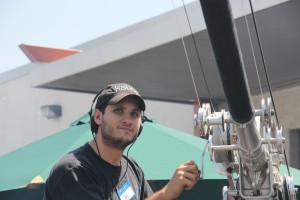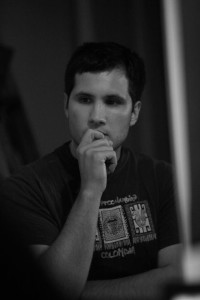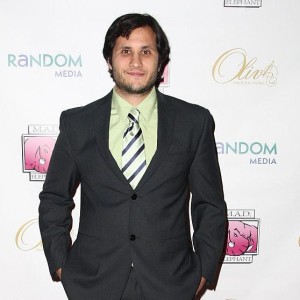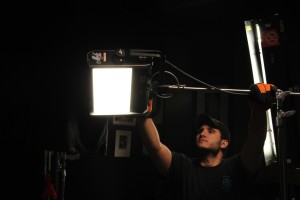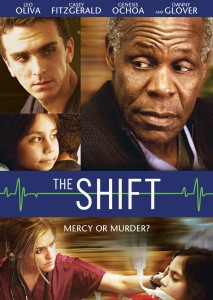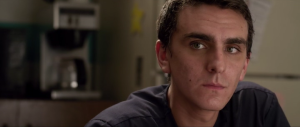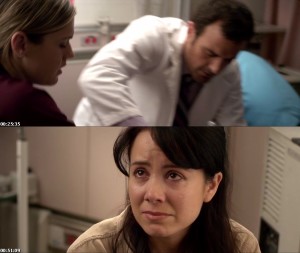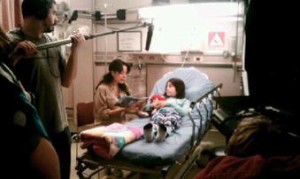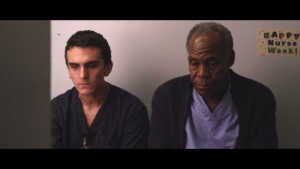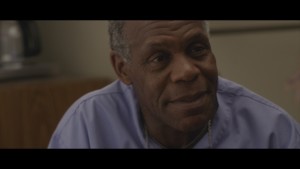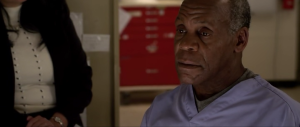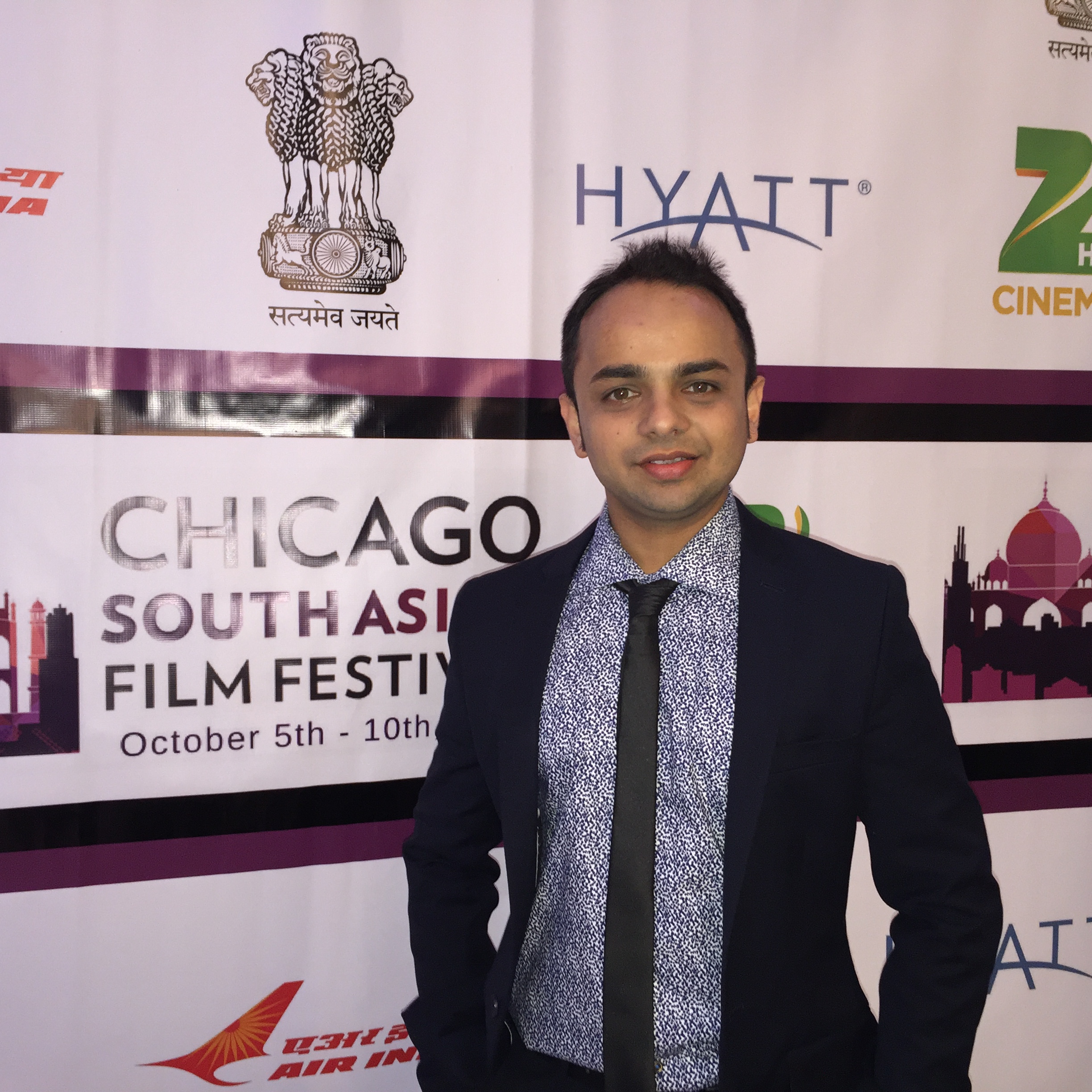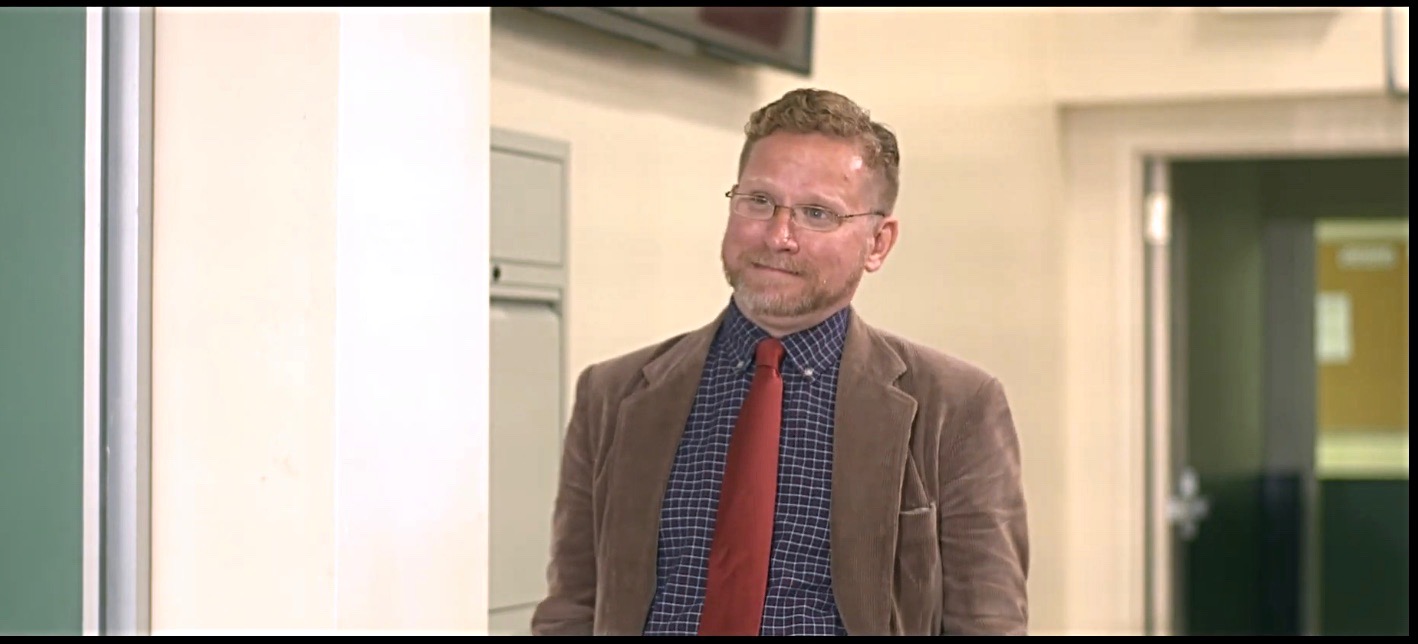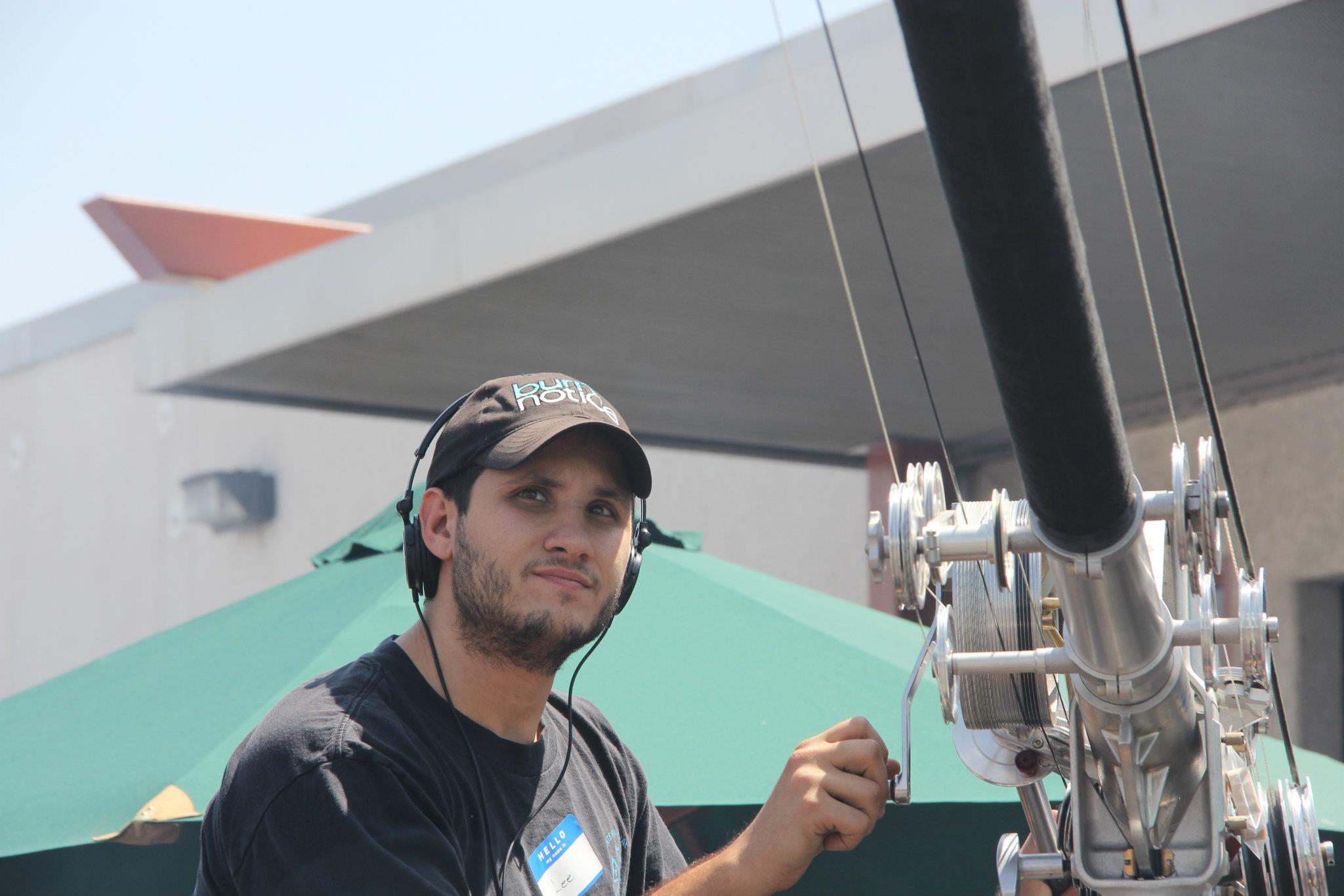
In Their Own Words: Director Lee Cipolla of “The Shift”
Hello again, readers, and welcome to OneFilmFan.com! In the ongoing efforts to connect with more filmmakers, actors/actresses, producers, and crew members from within the independent film world, yet another opportunity was presented thanks to one of those recent connections, actress Sara Castro and her newest film, “The Shift”. This time, thanks to Ms. Castro’s suggestion, OneFilmFan.com was able to score this interview with the film’s director, Lee Cipolla! As I always strive to do in the line of questioning, Mr. Cipolla was kind enough to indulge in an in-depth look at his path into the film world, the trials and triumphs of being in the business, how it was working with the cast of “The Shift” (including Danny Glover!), and per my normal “M.O.”, his favorite film of all time! Hence I present, Mr. Lee Cipolla!
One Film Fan: Born in Maspeth, New York, therefore an East Coaster. Tell us a little about who Lee Cipolla is. Then, how did your journey begin leading to the film industry and directing?
Lee Cipolla: I was born in NYC, but my parents moved us upstate when I was two so I really was a small town kid. I lived in a house where we didn’t have TV reception, and just had basically an old TV and a cranky VHS player. We only had a few movies, and I’d watch them on repeat – most notably Wizard of Oz and Stand By Me. My first word was “Dorothy”. My grandma would tape the Saturday night HBO movies on TV and send me the tapes periodically, and so I’d devour those.
My parents always pushed for us to read and use our imaginations. And they are both committed artists – my Dad is a screenwriter and my mother sings, dances and acts. My sisters and I grew up in an en environment where creative expression was encouraged. We were always reading, playing games or inventing things to feed that engine of creativity within us. My sisters are just as creative or more creative than I am. I think that stemmed from how we were raised.
While in high school, I studied theater and acting. In sophomore year, I wrote a play based on racial profiling. The TV Production class was supposed to turn it into a film, but it never happened. I got a couple of friends and we made it on our own. That meant I had to direct it. I had no idea what I was doing and it was nerve wrecking, but I fell in love with filmmaking at that point – and I have never stopped making movies since.
O.F.F.: How did you further learn the industry (ie: mentors, influences, and schooling)?
L.C.: Gary Sales was one of my Dad’s best friends, and he was a producer in the industry and invited me on my first real set, David Frankel’s, “Grapevine” TV series, when I was a teenager. I learned a lot by being on that, and I knew instantly that making movies was no walk in the park! But boy, it was exciting. I saw big stars walking around, lots of crazy looking equipment, and long shoots that would last through the night. I wasn’t sure what I would end up doing ultimately, but I knew I wanted to be in the business and on a set.
I was production assistant for many years in Miami after, but all the while my Dad and Gary always encouraged me to direct my little student projects on the side. David Frankel went on to direct huge movies like “The Devil Wears Prada” and “Marley and Me”. He remains a big supporter to this day and always is there to offer me advice on things in the business and truly is just a great friend. So those three were and still are my biggest mentors. But no one was more influential to me in pursuing my dreams than my Dad. He wouldn’t tolerate me giving up on any project and has always been there for me. I might have given up if it weren’t for him.
O.F.F.: From your bio, you’ve done a little of everything leading up to the more consistent directing projects, including Editing, Crew work, Writing, Producing, etc. What was it like knowing what area you wanted to arrive in, but then also knowing it may not be a direct road to get there?
L.C.: I’ve done just about everything on a professional set. I even did makeup before for a shoot! As you get started in the production world, it’s natural to jump around and do different tasks. I’ve done everything from PA to catering to craft service. I cherish the fact that I had the ability to experience – even in a small way – everything that everybody does. As a director, when I talk to crew, I can sort of understand what it’s like to be in their shoes. I also know that the production ain’t nothing without each and every one of them. I have a job to do and so do they, and we can’t do it without each other.
As far as directing, there’s no path to speak of. The biggest steps I’ve made has been on a personal project scale. The projects just get a little bigger each time. That’s the goal. Every movie needs to be better than the last.
O.F.F.: Have you found in your directing efforts, which have been a mix of both short films and feature length endeavors, that you’ve preferred one over the other? Or is it the simple joy of directing as a whole that drives you?
L.C.: Telling stories is telling stories – and that’s what we as filmmakers do. Tell stories. Cliché, but true. You’re sitting around a campfire, and you want to have everyone who’s listening to become enchanted by your tale. The most important purpose for me is having someone watch something I have created and be emotionally moved by it. I want them to say, “That changed my life” or be completely inspired.
I remember when I got the news that Lionsgate picked up my first two films. It was amazing and there was a good amount of celebration. But after a few days, that awesome feeling just kind of went away. Yesterday’s news, you know? It was kind of strange, as I had felt that I had gotten a little piece of my dream. But about a year after the movies came out, a college student contacted me through my website and said he was doing an essay on one of my films for his philosophy class because he was moved by the message of the film. I remember running around my apartment excitedly. It was an incredible feeling to have had an impact on someone else. The great feeling that that brought never goes away. Money and recognition is a temporary pleasure, but it doesn’t feed our souls. Helping others does.
O.F.F.: How hard has it been overall to get to the point you’re at now? We all hear the stories of how tough the film industry is!
L.C.: It can be a very trying business and an extremely competitive one. Most businesses are I suppose, but there’s no blueprint to being successful in the entertainment industry. I grew up around creativity with my parents and got a good sense of what working in the business was like. It helped prepare me for the realities I would face at trying to turn my passion into a legitimate career
I think that’s the first thing people sort of misinterpret about working in entertainment. Producing, writing, directing and performing in any medium is an extremely creative endeavor, but when people say, “Oh, you’re an artist” – I always try to remind them that I am working in show business. The word business takes up half of that phrase! In fact, I’d say a good portion of my time in Los Angeles has been dedicated to pitch meetings and trying to raise financing for projects.
So that being said, I look at myself as a “grinder” of sorts. I try to bring a workman attitude to making films. As a director, it’s not like you can work everyday on a set. But an athlete also doesn’t compete on the field everyday. However, it’s imperative that they train, condition and game plan for their next competition. Why shouldn’t it be the same with filmmakers? So, no matter what. I try to wake up at the same time in the morning and have a set schedule. From writing, editing, making calls, etc. I feel that despite a project happening, or not happening, keeping a focused schedule will ensure that you’re growing. It’s a must for a directors, because you can go long periods of time without getting on the playing field.
I think the workman attitude has helped me accomplish things. My first feature was self financed and shot with virtually a camcorder and a couple of really great friends. But whether it was making the film, sending it to festivals, or trying to find distribution – I just kept pushing and staying persistent despite all the “Nos” I heard along the way. The whole process spanned about five years, and there was a lot f uncertainty, but one day I got a call with the news that Lionsgate wanted to pick up my first two films. As much as I had dreamed about them getting a distro deal, that definitely exceeded my expectations. I felt blessed, but I also was happy that I never gave up on the films. So I think that persistence has really helped me.
O.F.F.: So, onto your newly released feature film, “The Shift”, available on multiple streaming services and now DVD. What drew you to direct this film?
L.C.: Leo Oliva – who wrote, starred and produced “The Shift”, was an actor friend who had told me about a script he had written on his experiences as an RN. I read it and felt very drawn into the realism of it. I had been pretty ignorant to what goes on in that world. On television shows you see the doctors running the codes and the nurses are kind of in the background. Boy, is that a misconception! So it opened my eyes, and I thought it would it would be great to bring that awareness to other people. Shortly after reading, Leo asked me if I wanted to direct it and I instantly accepted.
O.F.F.: For those who have yet to see it, and without spoilers, what is this story about?
L.C.: It’s about a veteran ER nurse who’s forced to train a new hire during one 12 hour night shift, but the two mix like water and oil as they both have conflicting views on euthanasia. As the night goes on, they are dealt extreme situations that ultimately force them to make life and death decisions that directly put their beliefs to the test.
O.F.F.: The film, viewed and reviewed here at OneFilmFan.com, is very character-driven drama, and at first a slow burn that builds to one whopper of a second act. Was that the original plan when you took on directing it?
L.C.: In terms of the script, yes. But, I definitely had some different ideas on how to mold the story. I didn’t want to “Hollywood-ize” it, but I definitely wanted to build some more conventional layers to it in terms of plot and character development. I wanted to reveal things a little more at the top of the story. Leo held strong to his original script where things developed slowly, but revealed a bigger twist and hit harder at the finish line. We had creative differences, and there were people on the production team that were concerned over our opposing views to such a crucial part of the movie. However, as we got close to shoot, we sat down and had a face to face and got on the same page.
In the end, despite what I thought was right, the fact was that I was neglecting the sole purpose of what drove Leo to create the project. Once I realized that, I bought into the idea of the slow burn and realized why that was so important. We come out stronger as a team after getting on the same page. Based upon a lot of reactions to the film, it has seemed to really have had the right effect. It’s not a conventional movie, but a statement film that makes you think and question your own beliefs. It’s a risk because you’re asking audiences to be patient, and open-minded, but the payoff is huge if people can connect themselves to it.
O.F.F.: Did you face any particular challenges while filming? How do you get the most out of your cast and the rest of the crew when shooting?
L.C.: Ha! I’m not sure if I am supposed to admit this, but there was a fire at one point. One of the lighting silks caught aflame, and I remember everyone scrambling around for cover. Our key grip saved the day, whipping out the extinguisher like a sword and putting the fire out. There were no real damages or injuries – thank God!
That was kind of a funny story – but yes there were challenges. Every movie has them. I think if I had to choose one, I’d say it was the schedule. We were only allowed to film at the hospital three days a week. So we literally would shoot for three days, and then break for four days. It was hard to get a flow going. Our cinematographer, Michael Lloyd, and his crew, really busted their butts. We were averaging close to ten pages a day.
When shooting an independent, low budget feature it’s always going be really tough on your cast and crew. There’s no getting around that. You’re going to have 15,16,17 hour days. However, no matter the situation, I just try and stay considerate of how I treat cast and crew. Things can get challenging on a set, but if people know that you appreciate their effort then I think they are more willing to stay fully committed to their work. I know from experience that there’s nothing worse than working on a long shoot and then have some director or producer yell at you.
You bite the bullet, but you also start to check out mentally. As a director, I need my team to be focused – but I also need to know that they need to be comfortable to concentrate. I hate to use the word “respect”, but…that’s what it is. Respect those who are busting their butts and they will stay committed mentally and be able to do their work.
O.F.F.: How was it working with actors like Leo Oliva, Sara Castro, Casey Fitzgerald, Genesis Ochoa, and the Big Guy—Danny Glover!
L.C.: All great, but all very different. Leo and Casey, the two leads, have completely different approaches to their craft. Casey is like a sponge. She always was down to develop her character’s backstory and analyze every decision she had to make for her character. I could probably talk to her for hours on end, and she’d keep asking for more. Leo’s opposite in that he did a lot of his own preparation and made very specific choices and stuck to them. He preferred simple, concise directing points. That made my job easy. They say “result” directing is a big no-no, but Leo actually preferred that. Like, I could have probably told him to just “get mad” or “cry” and he would do it
Sara did her own prep work too, and had her own methods to getting into the moment, and, man, she was always ready to deliver. It’s like they always say about acting, you can’t pretend to do anything- you actually have to do it! Someone doesn’t pretend to cry, they must cry for real! So you have to manifest something in your mind that brings you to that emotional state. Sara’s character goes through some intense emotions in the film, maybe more than any other character, and so she had to constantly put herself through that emotion over and over again.
Take after take. And we did many of them. People who haven’t done that, don’t realize how much of a toll that takes on you. Have you ever had a day where you cried a lot? You’re exhausted afterward. Add to that the pressures of a camera and crew staring at you? So, anyway, she just kept bringing it. I didn’t have to do anything but let her have her space to prepare, and her freedom in the performance space so that she could do her thing.
Genesis Ochoa was like a seasoned, veteran actress trapped in an 8-year old body. Incredibly disciplined, quiet, focused and obedient. You hear horror stories of working with children all the time, and she was the exact opposite. Oh, and her performance was great too. She was a true blessing for our film.
Working with Danny Glover was definitely a dream-like scenario. He was definitely one of my favorite actors growing up – an iconic figure in “Lethal Weapon”, “The Color Purple”, “Angels in the Outfield”, and one of my personal favorites, “Grand Canyon”. I’m happy to say that the warm, kind, and wise spirit that he often exudes on screen in his characters is also prevalent in the real life person. Most of my job entailed just sitting and watching the pro do his thing.
O.F.F.: What current projects are on the horizon or would you LIKE to be involved in?
L.C.: As a filmmaker you always have to have lot of pots on the stove, because it takes time to get projects made. You have to have a basket full of projects in development, and just hope that one takes off. I hope to direct a web series pilot for a show called “The Depositionist” in conjunction with Good Deed Entertainment in September. I also hope to helm “The Next Contender”, a drama about a Mixed Martial Arts fighter that’s close to being fully financed and is gearing to shoot in Canada by the end of this year.
I’ve also had some conversations with a producer who’s developing a young adult movie franchise that’s based on a popular book series and is looking to attach a director. I certainly would love to get that opportunity! I also have am developing a coming-of-age script that I plan to have ready by the end of the year.
O.F.F.: Independent film continues to be a genre that, while producing a healthy amount of material, still remains an unsung bastion of stories with deeper characters, more human stories, and often some very powerful acting that isn’t always seen in bigger Hollywood fare? Would you agree? And how important is it to you to see indie film promoted and brought into the light a little more?
L.C.: Couldn’t agree more. I am a part of the “Film Independent” program in Los Angeles, and so I go to as many networking events and screenings as I can. There’s not really a better experience on this earth to me then watching a great indie flick that totally knocks you off your seat. With all of the big superhero movies and predictable storylines in Hollywood these days, indie films still serve up those stories that can really surprise you. Unfortunately, indie features are getting harder to produce and harder to sell.
The few ones that rise into recognition are the big festival winners. Meanwhile, there’s several sleepers that fall through the cracks and are hidden away in the deep sea of Netflix and Amazon streaming sites. It’s just the reality of things right now. So, yes, the promotion and celebration of these strong little movies is so imperative. Great movies have the power to inspire people and change lives, and a lot of those types of impactful films are of the independent variety – but they need to be promoted to be seen by the public.
O.F.F.: What advice would you give to someone looking to get into the film industry in general?
L.C.: Make sure you really love what you do and are aiming to become a credit to your craft. If you’re in it for awards and recognition and red carpets – go do something else.
O.F.F.: Yes, I have to do it as the final question. What is YOUR favorite film of all time? Why?
L.C.: I always have difficulty answering this question because there are so many types of films and reasons why we love them. Also, different movies can have varying impacts on you depending on what stage of life you’re in. I probably have a favorite movie for every fifth year of my life. But if I have to say just one, then I have to go with ol’ reliable: “Stand By Me”.
A bit of a cliché answer, I guess, but it’s undoubtedly a classic and a landmark in film history. A coming-of-age film that raised the bar for all coming-of-age films that followed. Every time I watch it, I feel like I am getting dunked in a barrel of nostalgia. It’s becoming unbearable as I get older and I admittedly cry now throughout. I’ve probably literally watched that movie a thousand times in my lifetime, and I’ll watch it a thousand times more.
And there you have it! A fantastic, insightful, detailed look into the life of the independent film director named Lee Cipolla! And it truly is important, folks, that each of us who know what treasures the indie film world produces needs to help shout it out to the world and draw more and more film goers to the genre, as Mr. Cipolla stated above. If you see an indie film worth its salt, post about it anywhere and everywhere you can (if not already doing so), because I know some of the greatest efforts I have seen and reviewed in these initial 19 months at OneFilmFan.com have been indies. So in the meantime, want to keep up with Lee Cipolla? Check out these resources to do just that AND make sure to watch “The Shift” at your earliest convenience!
“Follow” Lee on his Twitter account: here
“Like” Lee’s Facebook Page: here
“Like” the film’s Facebook Page: here
I extend a heartfelt “Thank you!!” to Lee Cipolla for his willingness to do this excellent interview and share about his experiences in the film world! Keep watch for future endeavors from Lee and until next time, a special “Thank you!!” to the readers! Spread the word and keep coming back for more coverage of indie, documentary, and major film releases and the people that make them!
